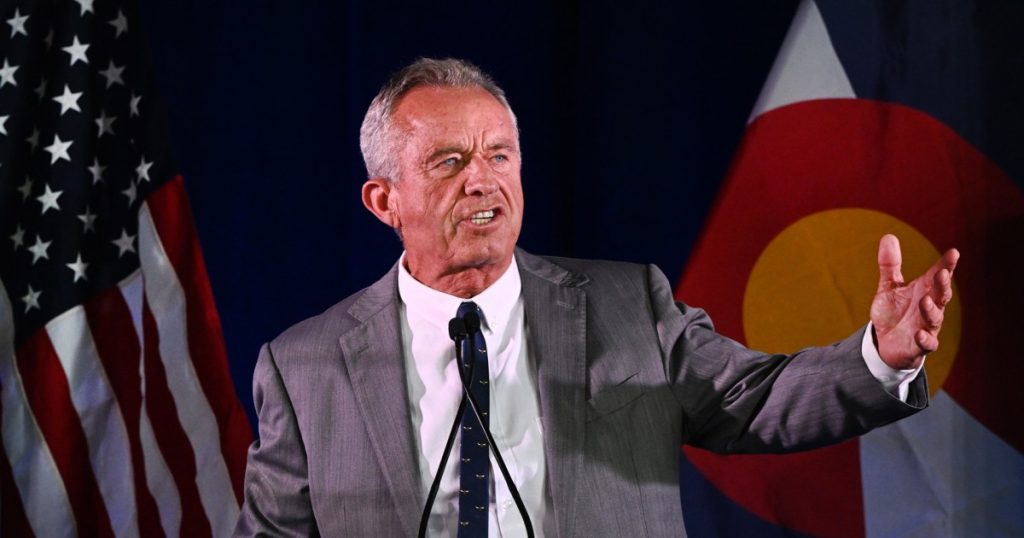Independent presidential candidate Robert F. Kennedy Jr. advocated for the U.S. president to hold negotiations with foreign adversaries such as Russia’s Vladimir Putin, China’s Xi Jinping, and former Iranian President Mahmoud Ahmadinejad. He emphasized the importance of diplomacy and dialogue in resolving conflicts rather than resorting to war. Kennedy also expressed the need to engage with other world leaders to maintain peaceful relationships and avoid conflicts. His stance on international relations was highlighted in a speech to a crowd of hundreds in Aurora, Colorado.
Kennedy’s comments coincided with reports of the death of Iranian President Ebrahim Raisi in a helicopter crash on the Iran-Azerbaijan border. Despite the lack of confirmation from NBC News at the time, the news of Raisi’s death had spread rapidly in American and global media. Kennedy’s call for dialogue with foreign leaders, including those no longer in office like Ahmadinejad, aimed to promote peaceful resolutions to conflicts and prevent further escalations. He emphasized the importance of keeping artificial intelligence within the country by avoiding heavy regulation that may drive it away.
Ahmadinejad, who served as Iran’s president from 2005 to 2013, was succeeded by Hassan Rouhani in 2013. Ahmadinejad was known for his staunch support of Iran’s nuclear program, which led to global tensions and negotiations over the country’s nuclear capabilities. The Iran nuclear deal, reached in 2015 between Iran, the U.S., and other nations, aimed to restrict Iran’s nuclear activities. However, former President Donald Trump withdrew from the agreement during his administration, citing concerns about Iran’s compliance and the deal’s effectiveness in preventing Iran from obtaining a nuclear bomb.
Kennedy’s inclusion of Ahmadinejad in the list of leaders the U.S. president should meet raised questions about the rationale behind such engagements. While Ahmadinejad’s tenure was marked by heightened tensions with Western nations over Iran’s nuclear ambitions, Kennedy’s call for dialogue with former adversaries echoed his belief in the power of diplomacy to bridge differences and prevent conflicts. By emphasizing the importance of peaceful negotiations and discussions with world leaders, Kennedy sought to promote a more cooperative and diplomatic approach to international relations.
The Kennedy campaign did not immediately respond to inquiries from NBC News regarding the specific reasons for including Ahmadinejad in the list of leaders with whom the U.S. president should engage. However, Kennedy’s broader message about the necessity of dialogue and diplomacy in resolving conflicts and building constructive relationships with foreign countries resonated with the audience in Aurora, Colorado. By advocating for a more diplomatic approach to foreign policy, Kennedy highlighted the potential benefits of engaging with former adversaries and promoting peace through diplomatic means.
In a world marked by geopolitical tensions and global challenges, Kennedy’s vision for U.S. foreign policy emphasized the importance of dialogue, negotiation, and engagement with foreign leaders to address conflicts and prevent the escalation of hostilities. Despite the complex nature of international relations and the challenges posed by adversarial relationships, Kennedy’s call for diplomacy and peaceful resolutions reflected a belief in the power of dialogue to build mutual understanding and cooperation among nations. As Kennedy’s presidential campaign continued to address issues of foreign policy and international relations, his advocacy for diplomacy and engagement with foreign leaders remained a central pillar of his platform.


